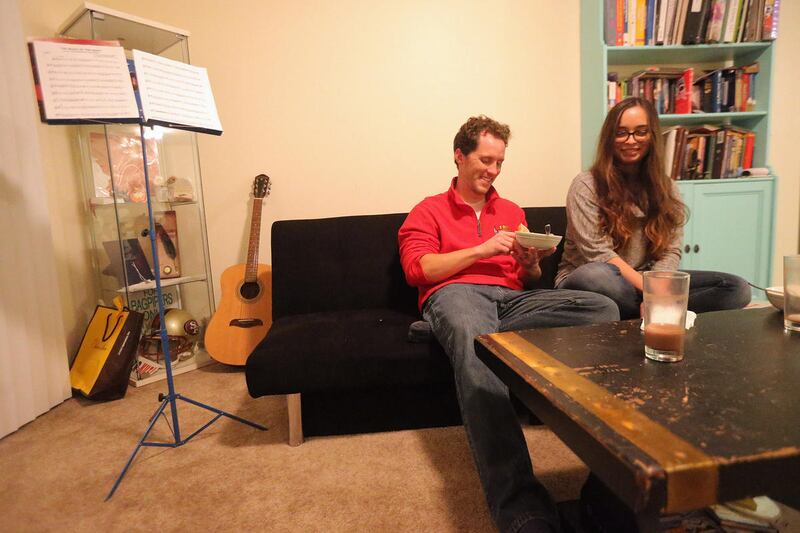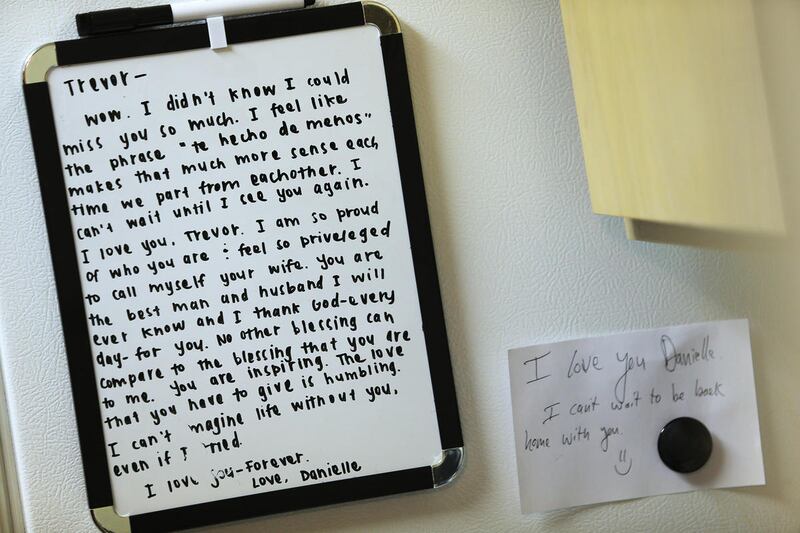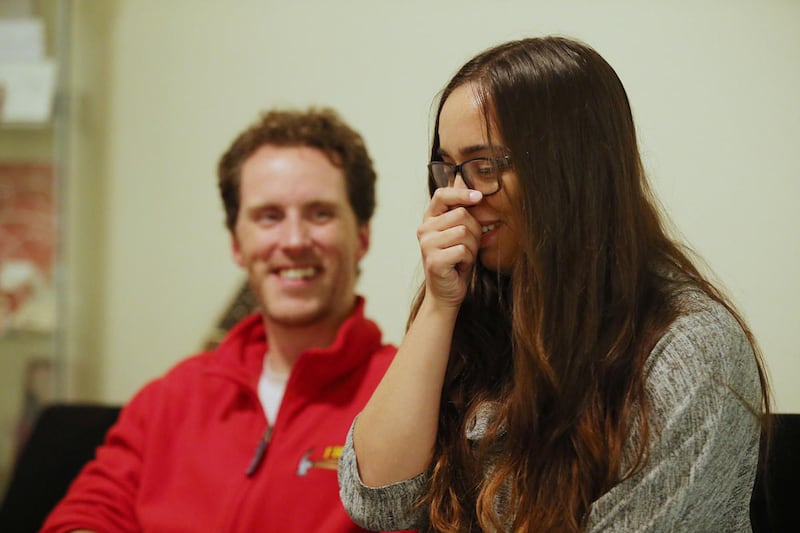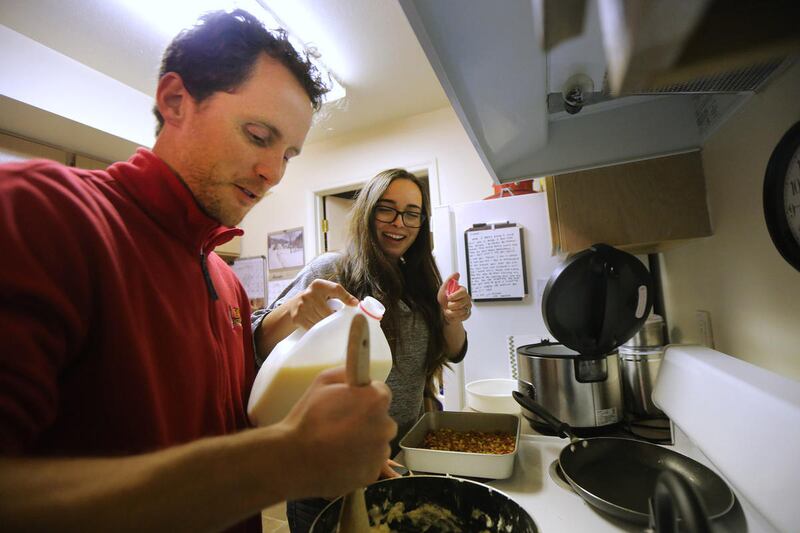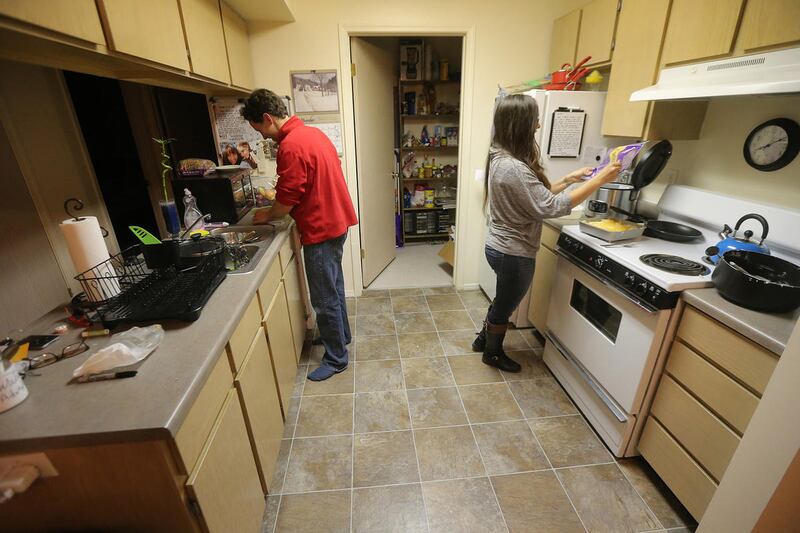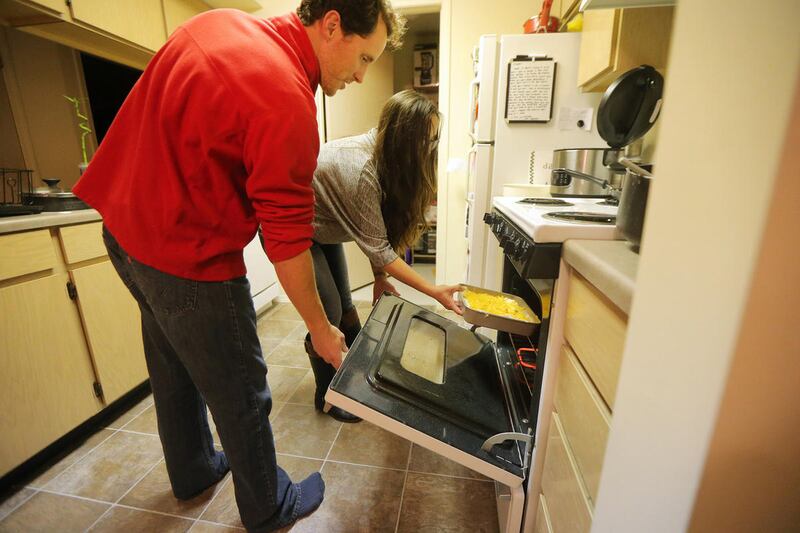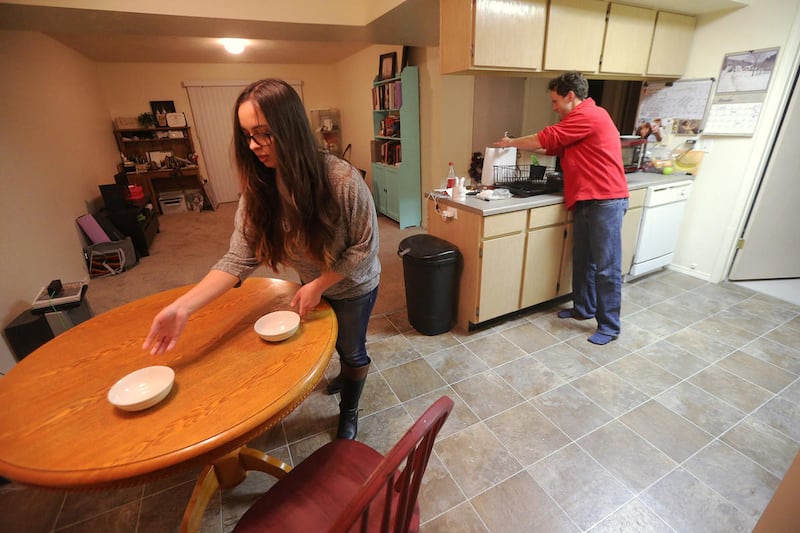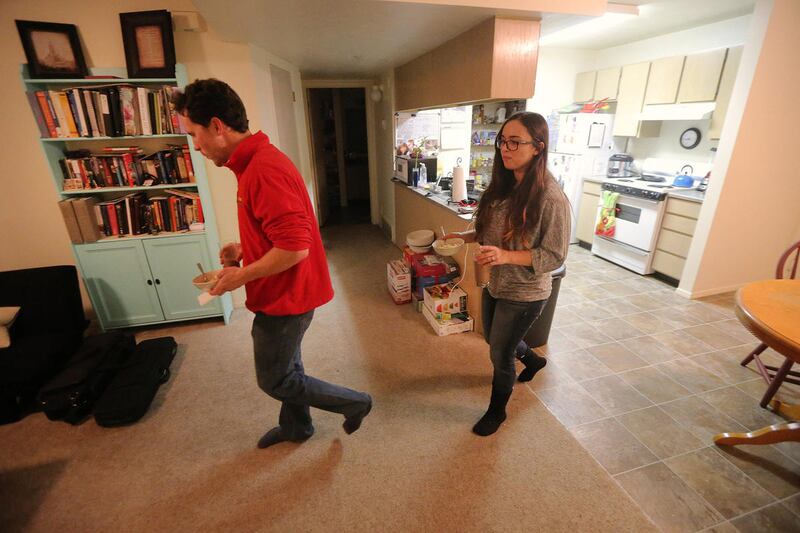Americans generally like their own marriages, ranking their marital satisfaction higher than satisfaction with their jobs, lives and other family relationships. But while they give their own marriages high marks, they feel marriage in general is faltering, according to a new national survey that probes attitudes about family life.
Liberals and conservatives also ascribe different meanings to marriage as an institution, with liberals less likely to see marriage as valuable to society. Despite those differences, conservatives and liberals behave day to day in their own marriages and families in remarkably similar ways, according to the American Family Survey, conducted by YouGov for the Deseret News and the Center for the Study of Elections and Democracy at Brigham Young University. Results are based on an online, nationally representative sample of 3,000 adults.
The survey indicates most adults believe marriage makes stronger, more financially healthy families. That view is stronger among older adults than among young adults, and among conservatives compared to liberals. Unmarried individuals are less likely to think of marriage as a social good, but most of them do hope to marry.
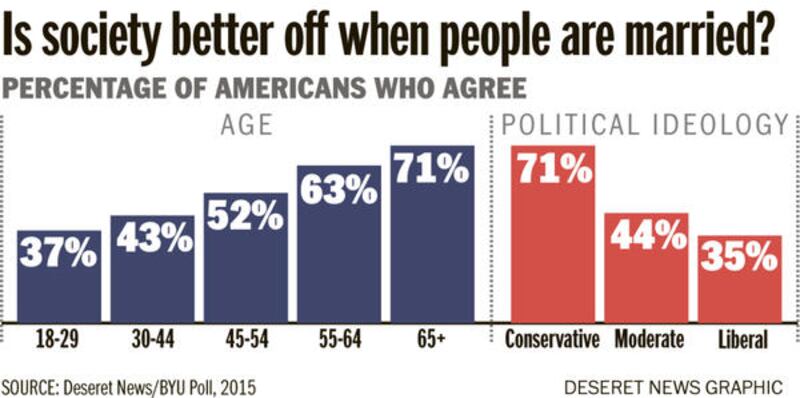
Asked if marriage is out-of-date, 71 percent of Americans said no, compared to 12 percent who said yes. Six in 10 felt marriage makes families and kids better off financially; 15 percent disagreed. Asked if marriage is needed to create strong families, 62 percent said yes, 22 percent no.
A slight majority, 52 percent, said society is better off when more people are married, compared to 15 percent who disagreed. One-third of respondents neither agreed or disagreed.
"I think it suggests that marriage is still highly valued by Americans," said Andrew Cherlin, professor of sociology and public policy and director of the Hopkins Population Center at Johns Hopkins University. "A few decades ago, I was not sure marriage was going to remain important, but it has in a way that's somewhat surprising to the doomsayers among us.
"Most people still believe in marriage, but are more tolerant of those who make different choices," he said.
My marriage vs. everyone else's
Eighty-five percent of those surveyed expressed some level of satisfaction with their marriage or relationship; 79 percent were similarly satisfied with family life, 72 percent with personal life and 39 percent with their job.
"When we look at life satisfaction, married people who are not separated from their spouse report the highest levels of satisfaction. It's lowest among married people who are separated. If they think their marriage is doing okay, there's a high level of satisfaction. If marriage is going through turbulence, that really is a challenge, disruptive to life satisfaction," said Christopher F. Karpowitz, co-director of CSED, associate professor of political science and co-writer of the study. The survey also confirms that life satisfaction is related to income.
The survey found older married people were most satisfied with their marriages, and were not as likely as younger ones to be working on their marriages or to see problems in them. Older couples have probably been married for decades and would have already worked through things or divorced if there were major problems, said Cherlin, author of "The Marriage Go-Round" and "Labor's Love Lost." "Half of all divorces occur within 10 years of marriage," he said.
People may also hedge in their answers to questions about their marriages, Cherlin said. It's okay to admit you don't like your job, but people may be reluctant to admit they are unhappy in their marriages, he said. "Marriage is so important in a deeply personal sense in a way that a job isn't."
Asked about their own marriage over the last two years, just 6 percent surveyed said it's weaker, with 43 percent saying it's stronger. But when asked about marriage in general, only 5 percent say it's stronger, with 43 percent saying it's weaker.
That so many believe marriage is in trouble but their own is doing fine reflects what Richard Reeves calls an "atmospheric" effect that appears often in the social sciences: "'The school system is terrible, but my school's fine. The health care system's collapsing, but I like my doctor.' Both can't be true," said Reeves, co-director of the Center on Children and Family at the Brookings Institution and a consultant on the survey.
"It suggests that the sort of cultural story that's being told around this just doesn't fit that closely with people's actual experience. I bet if you asked about the marriages in their family or among their immediate neighbors and friends, you'd get (similarly high) results. I doubt people would say 'all our friends' and family's marriages are collapsing.'"
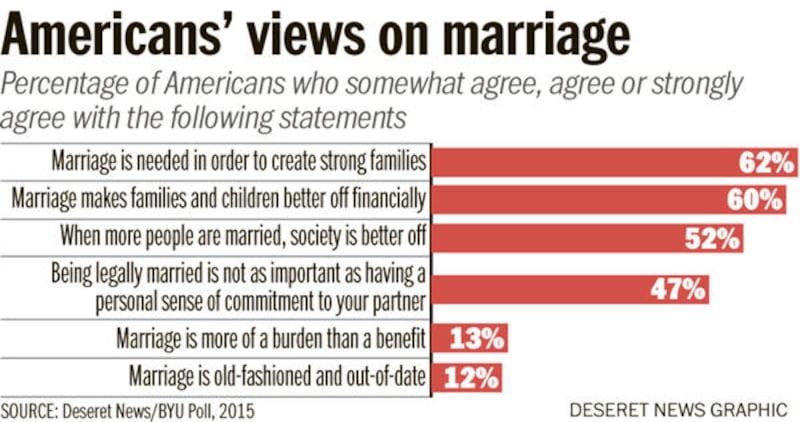
Such satisfaction with one's own marriage but skepticism about others' is fed by cultural messages, said Brian Willoughby, assistant professor of family life at BYU, who was not involved in the survey.
"When a lot of people look at their own marriage, they say I'm pretty happy, pretty satisfied, but then they look at the news and they look at movies and TV shows and how marriages are depicted there," he said. Social media also feeds that negative view, since "there are a lot of marriages that are struggling and what happens in social networks is we tend to hear a lot of the sad stories. We are almost bombarded on a daily basis about all of these horrible situations families find themselves in."
The divorce rate "is pretty high, but most marriages still make it," Willoughby said.
Brad Wilcox, who heads the National Marriage Project at the University of Virginia and is a scholar at the American Enterprise Institute and the Institute for Family Studies, said the "I'm-OK-you're-not-OK" perspective on marriage could reveal something about people's worldviews. "There are two possibilities: The perception of the outside world is too dark and they understand the reality of their own life well. Or they understand the outside world but don't see the challenges in their own immediate context," he said.
Wilcox, who also consulted on development of the survey, said half of kids spend some time outside of an intact marriage, "an indicator that all's not well" in marriages. That fewer young adults than older adults see marriage as important could portend a future dip in marriage rates, he added.
Togetherness — or not
Conservatives were more likely to say society is better off when more people are married, the survey found. Close to 90 percent of conservatives agreed with the statement, compared with less than half of liberals.

However, in spite of ideological differences about the social meaning of marriage, American married couples act in remarkably similar ways within their marriages and families — and by and large they're good to each other. Eighty-five percent said they do something nice for their spouse at least weekly, by far the most common activity on a list of activities that included discussing finances and political and social issues (60 and 61 percent weekly or more often, respectively) and having sex (59 percent). Nearly half of married respondents said they discuss their relationship at least weekly. About a quarter (28 percent) said they pray with their spouse at least weekly. Six percent said they hide finances from their spouse that often and just 5 percent reported sleeping in separate rooms.
Since they married in August, Trevor and Danielle Williams of Riverton, Utah, ages 28 and 22, have been surprising each other with little love notes and unexpected acts of kindness. But those sweet gestures, while important, don't outweigh the other things they give each other, like mutual respect, she said. They defend each other. They tell each other the truth. And they forgive each other if things go wrong.
"We have a relationship that no one else is — or will ever be — invited to participate in," she said. "We hold our marriage as the most precious thing in our lives. That means protecting it."
The small things couples do can strengthen or weaken relationships, and attitudes matter, as well, said Wilcox. "People who don't embrace as a couple the idea that marriage is for life are more likely to have a low-quality marriage and to divorce," he said.
"More positively, couples who are gainfully employed, who are intentionally loving and generous with one another, couples who believe their marriage is a lifelong marriage and who are involved in the community are more happy and resilient," he said.
Anne Malec, a Chicago psychologist, said couples should talk daily, even briefly. Many of the troubles she sees in her marriage and family therapy practice result from poor communication or from prioritizing other things higher than the relationship. "Are you giving each other daily attention, appreciation and affection? I often see people who think that just because marriage takes work, that means there's something wrong with it. ... It is just what marriage takes."
As for religion's role in marriage stability, Wilcox said research indicates couples who share a faith do best. Those sharing a degree of faith — people who are "nominal Jews or Catholics or are both pretty secular" — are better off than those with different degrees of faith. "The worst combination is a couple with strongly divergent views about religion, like a devout evangelical man with a secular woman," he said.
Religious differences that don't seem to matter to new couples may become "more of a solvent" as time passes and couples have children, he warned.
Should we?
Other research has also shown that young adults say marriage is important and good for relationships, even if they're not sure they'll commit to it themselves, said Willoughby.
"I think a lot of people assume marriage has been devalued," he said. "There's nothing that indicates people don't care about marriage any more. If anything, the view is more positive than in the past. It's the ultimate goal for a committed relationship but, on the flip side, there's a paradoxical idea that I might not do that or want that. American culture has made marriage an awesome but optional thing you could do."
He describes that attitude toward marriage as "the cherry on top that completes things" because it comes after getting education and career in place rather than before. Many people of lower economic status are not sure they will ever be able to reach that point in their lives, he said.
Wendy Wang, a Pew Research Center senior researcher who looks at social and demographic trends, said those with lower education "somehow follow a different path than those with more education" and are less likely to marry.
In May 2014, Pew asked how important marriage is when couples have decided to spend their lives together. Roughly a third, 36 percent, of young adults 18-29 thought they should get married. Far more older respondents thought so.
For older generations, getting married was an essential part of being an adult, said Cherlin. Now, however, it has become optional — "highly valued but not, strictly speaking, essential."
Reeves sees a "strongly child-centric foundation to the pro-marriage sentiment of the average American. ... When you introduce children into the equation, you get quite a significant shift in sentiment toward marriage. Marriage just as marriage is a more divisive question than marriage as an institution in which to raise children."
The survey also asked about what, ideally, should happen before marriage. Fully 90 percent of those surveyed said it's at least somewhat important to have a stable job before marriage. Similarly, 81 percent said it's important to have some savings or be paying off debt. Far fewer suggest buying a home first is important (31 percent). Nearly half (46 percent) found value in living with a future spouse before marrying, while about a third said it's at least somewhat important to have had several serious relationships before marrying.
"A lot of those are quite straight-forward, but you see quite a lot of people saying it's important to have lived together, it's important to have had several serious relationships," said Reeves.
"The taboo against premartal sex and premarital cohabitation is much less strong than one might expect and certainly less strong than they used to be," he said, noting divisions between conservatives and liberals and between older and younger respondents.
"In the younger generation, the ones choosing to be married are the ones wiling to put more resources into their relationship," Willoughby said. "Marriage is now very much a choice someone makes."
Most Americans think their own marriage is better than others, Deseret News-BYU survey finds
Email: lois@deseretnews.com, Twitter: Loisco

